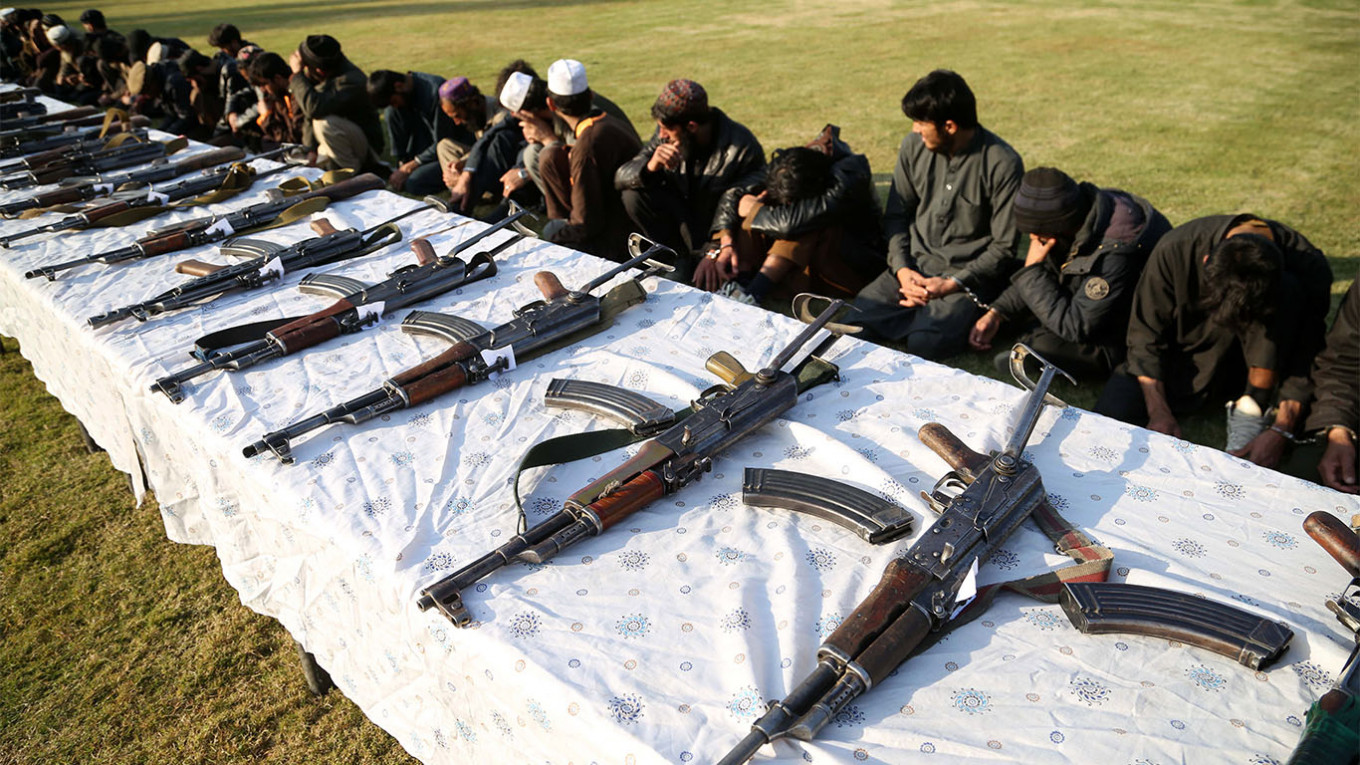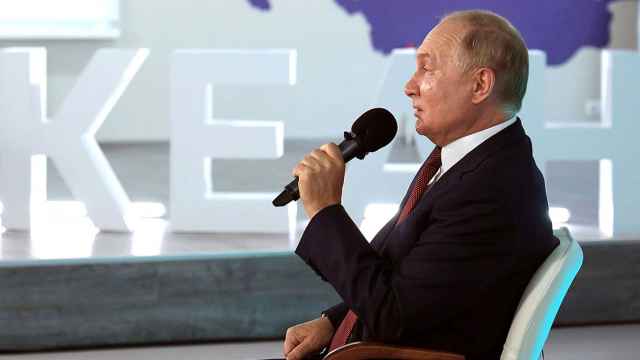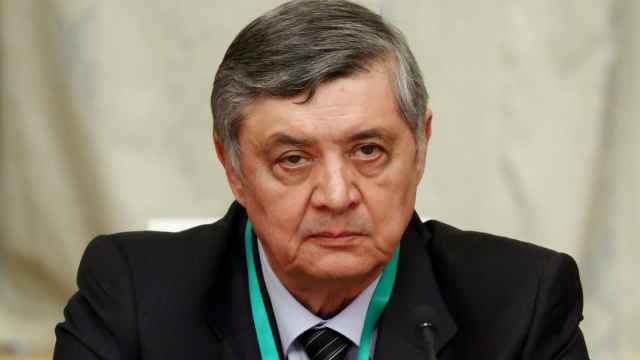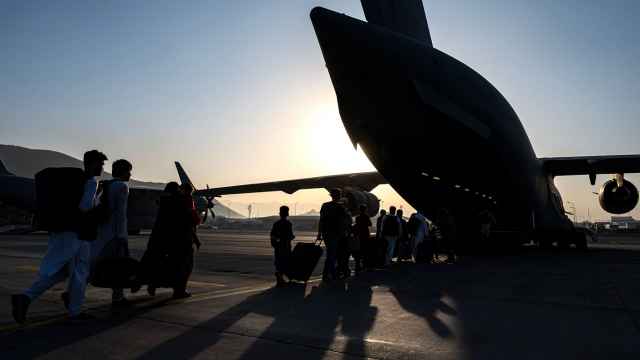What to make of the current claims that Russia paid the Taliban bounties to kill U.S. and allied soldiers in Afghanistan? Both Moscow and the Taliban deny it, while claims of new evidence surface. It is still hard to understand any reason for the Kremlin to take such a dangerous step, though — and a possible alternative explanation for what evidence has been presented.
The original claim was that early in 2019, the Kremlin began offering the Taliban and possibly other insurgent groups bounties to target allied forces. It came, though, from unnamed “U.S. intelligence sources” speaking to The New York Times. Since then there have been further claims about money found in Taliban headquarters and the role of a shadowy Afghan hawala-broker — an informal money-mover — in the alleged transfers, as well as the involvement of Unit 29155 of the GRU (military intelligence). However, as of this writing, there has been no formal confirmation of the story.
The story was quickly mobilized to attack Donald Trump for his alleged indifference to the deaths of American soldiers. After all, in current U.S. political circles it often seems that talking about “Russia” is really shorthand for talking about the current White House. This has just been the latest in a string of leaked stories eagerly — and often uncritically — run by U.S. media outlets which make no secret of their distaste for the current president.
An extraordinary tale
It is very hard to know what to make of this allegation. The Kremlin is not averse to playing geopolitics hard. New evidence has emerged recently linking the FSB to murders in Germany and Turkey, and the GRU has been connected to “wet work” in the U.K., Ukraine and beyond.
Yet their targets tend to be “traitors,” from Chechen rebels to defectors, rather that outsiders. Indeed, they appear well aware of the risks in killing others, especially Americans. In Syria, for example, they sat back and meekly allowed U.S. forces to kill hundreds of Russians from the Wagner Group mercenary force.
To target Americans would seem to be a major escalation, inviting retaliation — and despite the claims that Trump is “Putin’s puppet,” U.S. policy towards Russia is already tougher than at any point since 1991, largely because it is in the hands of Congress. Were Moscow to take this step — and it is worth noting that the recent allegations about a Russian plot to assassinate Czech politicians, another seeming escalation of Kremlin “active measures,” turned out to be a hoax – this would presumably only be for the best of reasons.
And those reasons would be? That’s rather trickier to say, except for the ultra-hawks who believe, evidence notwithstanding, that hurting Americans is an end in itself for Putin and his circle, or that everything is a provocation intended to make Washington look weak because it cannot stop them.
Admittedly, the USA did much the same to the Soviets during their ten-year occupation of Afghanistan 1979-88, but there is no reason to believe that war has any particular relevance to Putin — he has scarcely mentioned it, and in 2004 called it a “hopeless war” — let alone that it could trigger such a murderous adventure.
Today, Afghanistan matters to Moscow especially as a source of potential instability. The irony is that some have suggested that killing more American soldiers was intended to accelerate their withdrawal from the country — and some that it would make it harder for them to strike a deal with the Taliban, and thus keep them there longer. Either way, it is hard to see how a few more deaths, however tragic, would alter policy.
A similarly implausible suggestion is that it is revenge for the deaths of those Wagner mercenaries in 2018. Yet the Russian military command cell in Damascus had done nothing to prevent the U.S. forces from destroying them, nor even warned them. Nor was there any real sign of serious dismay back in Moscow.
An alternative explanation
The Kremlin or the GRU can hardly have put their faith in the discretion of a random collection of Afghan militants, drug barons and warlords for the operational security of such a mission: it would have taken epic over-confidence to think that news of bounties on Americans’ heads would not have leaked, and leaked soon.
Moscow had greeted the U.S.-Taliban agreement paving the way for a withdrawal of American forces with satisfaction. They were happy to see Washington draw down its commitments across the Middle East, not least as it gives the Russians a chance to play a more substantial role on the cheap.
The Russians need to limit and monitor the Afghan heroin trade (Russia has the highest per-capita consumption in the world). They are also desperate to prevent Afghanistan from becoming a source of transnational jihadism spreading into Central Asia and thence Russia.
To this end, they have identified Islamic State, and specifically its resurgent local branch, Islamic State-Khorasan (IS-K), as the main threat. They maintain relationships with the Taliban especially because they see them as a useful counter to IS-K, and seek to develop networks of other allies across the country for both military and intelligence-gathering reasons.
These hard-nosed Afghan warlords do not cooperate with Moscow out of altruism or good-neighborliness. In today’s Afghanistan — just as the British and the Russians found during the “Great Game” of the nineteenth century — alliances are bought with blood, arms, and cash. Certainly, the U.S. has not shied away from such pragmatic behavior.
The Russians are already supplying the Taliban weapons. Let’s suppose they have a wider program to establish networks of contacts and proxies in-country, one that involves direct payments as well as the involvement of a hawala-broker. If sending a suitcase of dollars to a warlord in the hills around Kandahar, for example, they will want to make sure it gets to its destination. This sounds like a job for the tough throat-slitters of Unit 29155.
(Besides, the Taliban’s involvement in the opium trade means it is, to quote The New York Times, “awash with cash” — finding large sums in one of their headquarters is hardly a surprise.)
Is this actually what was happening? I have no idea. The point is, rather, that a narrative that seems to stretch probability to breaking point, and which may have emerged from very tainted sources, is being accepted as proven, when there are all kinds of alternative possibilities.
This story appears to have originated from Kabul, likely from interrogations carried out by the Afghan security forces. They have been implicated in systematic abuses — and under torture anyone will say anything. With the U.S. National Security Agency having said that it had no evidence supporting the bounty story, we still have no corroboration yet that this is a story based on more than conjecture and coercion.
Of course, it could be absolutely true, and the hard evidence and on-the-record confirmation may be just around the corner. At present, though, it is worth being cautious about assuming the absolute worse and that Moscow has dramatically changed its rules of engagement.
A Message from The Moscow Times:
Dear readers,
We are facing unprecedented challenges. Russia's Prosecutor General's Office has designated The Moscow Times as an "undesirable" organization, criminalizing our work and putting our staff at risk of prosecution. This follows our earlier unjust labeling as a "foreign agent."
These actions are direct attempts to silence independent journalism in Russia. The authorities claim our work "discredits the decisions of the Russian leadership." We see things differently: we strive to provide accurate, unbiased reporting on Russia.
We, the journalists of The Moscow Times, refuse to be silenced. But to continue our work, we need your help.
Your support, no matter how small, makes a world of difference. If you can, please support us monthly starting from just $2. It's quick to set up, and every contribution makes a significant impact.
By supporting The Moscow Times, you're defending open, independent journalism in the face of repression. Thank you for standing with us.
Remind me later.








